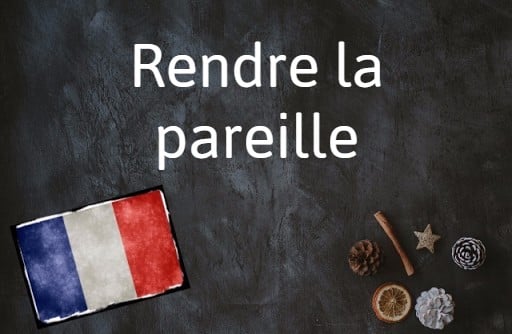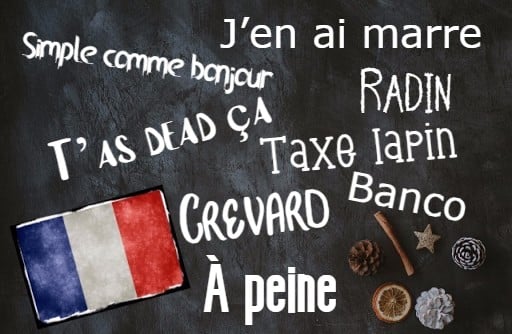Why do I need to know rendre la pareille?
Because even many French people struggle with this one.
What does it mean?
Rendre means “to give back”, and pareille is the feminine form of pareil, meaning “same”. So rendre la pareille means treating someone the same way they treated you.
Here the l in pareille is pronounced as a ‘y’ sound, so it’s more like par-ay, not par-el.
You can use the phrase in the positive sense of returning the favour, or if that treatment is less pleasant, in which case you’re getting your own back, or giving as good as you get.
The expression came up recently when 240 healthcare workers from mainland France went to help out in the overseas territories where the Covid crisis was much worse.
On a su nous aider quand c’était un petit peu la crise en Normandie, maintenant c’est à nous de rendre la pareille – We received help when there was something of a crisis in Normandy, now it’s up to us to return the favour – one nurse told BFM.
Not to be confused with…
Many people, including native speakers, hear this expression and presume it’s written rendre l’appareil. That phrase sounds identical, but an appareil refers to a machine, or appliance, such as an appareil à raclette for making the traditional (and delicious) French meal.
The French language guardians at the Académie Française are characteristically blunt in their explanation:
“If you want to say ‘make someone suffer the same treatment they gave you, use the same behaviour towards them’, you’ll write Rendre la pareille.
“If you’ve borrowed an applicance, you’ll write Rendre l’appareil.”
Use it like this
Mes amis me soutiennent beaucoup et j’essaie de leur rendre la pareille – My friends give me a lot of support, and I try to return the favour
Il m’a blessée, donc je vais lui rendre la pareille – He hurt me, so I’m going to do the same to him
Après sa défaite face à la Croatie en 2018, l’Angleterre lui a rendu la pareille à l’Euro 2020 – After losing to Croatia in 2018, England took their revenge at Euro 2020



 Please whitelist us to continue reading.
Please whitelist us to continue reading.
Member comments